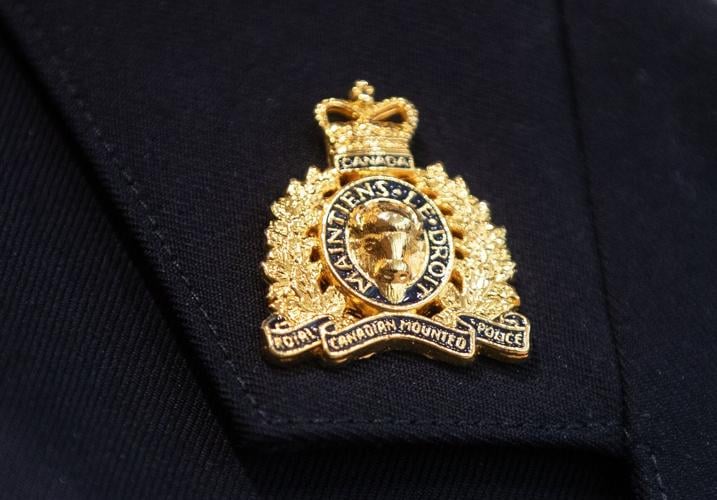The RCMP have dismantled what theyŌĆÖre calling one of the largest drug trafficking networks based on the so-called ŌĆ£dark webŌĆØ in Canadian history.
The dark web is made up of hidden, encrypted networks that require special software to access and hide usersŌĆÖ IP addresses, making their activity nearly untraceable ŌĆö an attractive prospect for would-be traffickers and their customers.
The GTA-based group ŌĆö operating under the name ŌĆ£RoadRunnaŌĆØ ŌĆö was a ŌĆ£sophisticatedŌĆØ enterprise that was shipping roughly 400 packages of drugs weekly across Canada, including through Canada Post, the RCMP said.
Seven individuals from Toronto, Brampton and Mississauga have been arrested and charged with a slew of drug offences; the site where RoadRunna was active has been taken down.
ŌĆ£Criminals are finding increasingly sophisticated and modern ways to evade the law, but we will continue to identify, disrupt, and dismantle these types of networks,ŌĆØ said Insp. Nicole Noonan, OIC Integrated Response and Organized Crime, Central Region RCMP.
According to the RCMP, the RoadRunna bust traces back to German authorities . The websiteŌĆÖs infrastructure appears to have been based in Germany but had clientele and traffickers across Europe, the United States and Brazil.

Drug packaging that the RCMP connected to the ŌĆ£sophisticated” RoadRunna network.
RCMPAuthorities overseas contacted the RCMP about several Canadian-based users suspected of drug trafficking. The RCMP worked with the Financial Transactions and Reports Analysis Centre of Canada (FINTRAC), Europol Joint Cybercrime Action Taskforce and Canada Post Security to analyze data seized after the Monopoly Market was taken down.
That led them to the seven individuals in the RoadRunna group, which had been operating since at least December 2021, the RCMP said.┬Ā
In all, officers seized 75 kilograms of various drugs, including cocaine, MDMA, crystal meth, heroin, ketamine and 10,0000 prescription and non-prescription pills.
While the dark web was once seen as a relatively safe haven for criminals, experts say cracks are starting to show. Advancements in technology have made certain cryptocurrency transactions easier to trace, while police have developed new methods to track down the operators and users of illegal websites.
Often, a case may come down to human errors, such as a site operator accidentally disclosing their personal email address in communications.
David D├®cary-H├®tu, a cybercrime expert and criminology professor at the University of Montreal, said criminals on the dark web are routinely trying new methods to stay anonymous.
ŌĆ£We see people switching their servers very routinely, trying to lose any tracking of their activities,ŌĆØ he said.
A lot of drug trafficking is moving to Telegram, an encrypted messaging app whose founder was arrested for allegedly ignoring illegal activity on the platform, he said.
Traffickers are also switching away from Bitcoin to Monero as their preferred cryptocurrency, because itŌĆÖs more difficult to track the transactions. Cryptocurrency transactions were once largely shielded from public view in the blockchain, which is a record of transactions maintained across multiple computers linked in a network.
ŌĆ£Now the blockchain is completely public,ŌĆØ said Richard Frank, a cybercrime expert and a criminology professor at Simon Fraser University. ŌĆ£We now have tools to visualize the blockchain, you can track payments from one node to another.ŌĆØ
But the dark web still presents significant challenges for law enforcement, with breakthroughs often coming after a lucky break. In the case of Ross Ulbricht, founder of the infamous Silk Road, itŌĆÖs believed police tracked him down after he used his personal email address on a Bitcoin website, which they were able to connect with the Silk Road.┬Ā
ŌĆ£ThereŌĆÖs a lot of anonymity inherent to the dark web,ŌĆØ Frank said. ŌĆ£You canŌĆÖt geolocate these servers, you donŌĆÖt have IP addresses. So you really are relying on the mistakes.ŌĆØ
D├®cary-H├®tu added that heŌĆÖs noticed these websites donŌĆÖt tend to stay up for long. But even when theyŌĆÖre taken down, they are quickly replaced by new ones.
The RoadRunna case is not the first major operation involving Canadians using the dark web for illegal activities. AlphaBay, which was taken down in 2017, offered drugs but also stolen and fraudulent information, hacking tools and firearms. It was started by a Canadian named Alexandre Cazes. The 25-year-old was arrested in Thailand but was found dead in his cell before he could go to trial.
The RCMP were also involved in an investigation into ŌĆ£Mr. Hotsauce,ŌĆØ a Canadian dark web drug vendor selling fentanyl, heroin, cocaine and other substances.



























To join the conversation set a first and last name in your user profile.
Sign in or register for free to join the Conversation